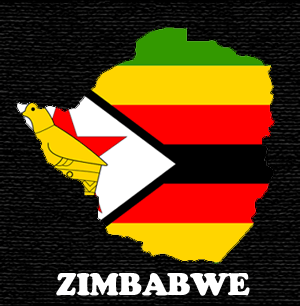Media rights group: two reporters left Zimbabwe, worry on third
 New York - The New York-based Committee to Protect Journalists Wednesday said Wednesday that two foreign journalists aquitted earlier in Zimbabwe of charges had left that southern African country.
New York - The New York-based Committee to Protect Journalists Wednesday said Wednesday that two foreign journalists aquitted earlier in Zimbabwe of charges had left that southern African country.
But the group said it remained concerned over the arrest on Tuesday of Zimbabwean freelance journalist Frank Chikowore.
"We welcome the release of Barry Bearak and Steve Bevan," said CPJ executive director Joel Simon in an e-mailed statement. "But the pattern of arbitrary arrests of journalists continues, with yesterday's detention of another journalist in Harare."
CPJ quoted local journalists as saying that Chikowore was arrested while covering a strike on Tuesday organized by the opposition Movement for Democratic Change on Tuesday.
Chikowore was arrested along with 14 others and charged with arson after a bus was burnt near the demonstration. Chikowore was previously arrested in 2005 for filming a police crackdown on street vendors in Harare.
Eighteen days after the March 29 presidential vote, the Zimbabwe elections commission has refused to release results but called for a recount. President Robert Mugabe, who has ruled for more than 20 years, has called for a run-off vote, but opposition candidate Morgan Tsvangirai claims he has won - a claim supported by election observers and nongovernmental organizations.
Earlier Wednesday, a court in Zimbabwe acquitted New York Times correspondent Bearak and Britain's Bevan, a freelance journalist with the Sunday Telegraph, on charges of covering the country's March 29 elections without accreditation.
Magistrate Gloria Takundwa said the state's evidence against the two correspondents was "inconsistent and unreliable" and that the two should be released from remand.
Bearak and Bevan were arrested on April 3 during a police raid on a tourist lodge in Harare aimed at rooting out foreign journalists who were covering the elections without accreditation.
The attorney-general found no case against the pair but police initially refused to release them and brought new charges. The two spent four nights in jail before being released on bail with conditions.
Under Zimbabwe's draconian media laws working without official accreditation is an offence carrying penalties of up to two years in prison.
Only a handful of foreign journalists from "friendly" countries were given permission to cover the polls.
Commenting on the judgement the journalists' lawyer Beatrice Mtetwa said: "At least the magistrate court, unlike the judges, still applies the law as it should be."
"For this case and the other one (of two South African employees of a satellite broadcasting company also charged and later acquitted of working without accreditation) justice has prevailed."
Bearak, who received medical treatment for a back injury sustained during a fall in jail, declined an interview request. Bevan said merely: "I am very relieved." (dpa)